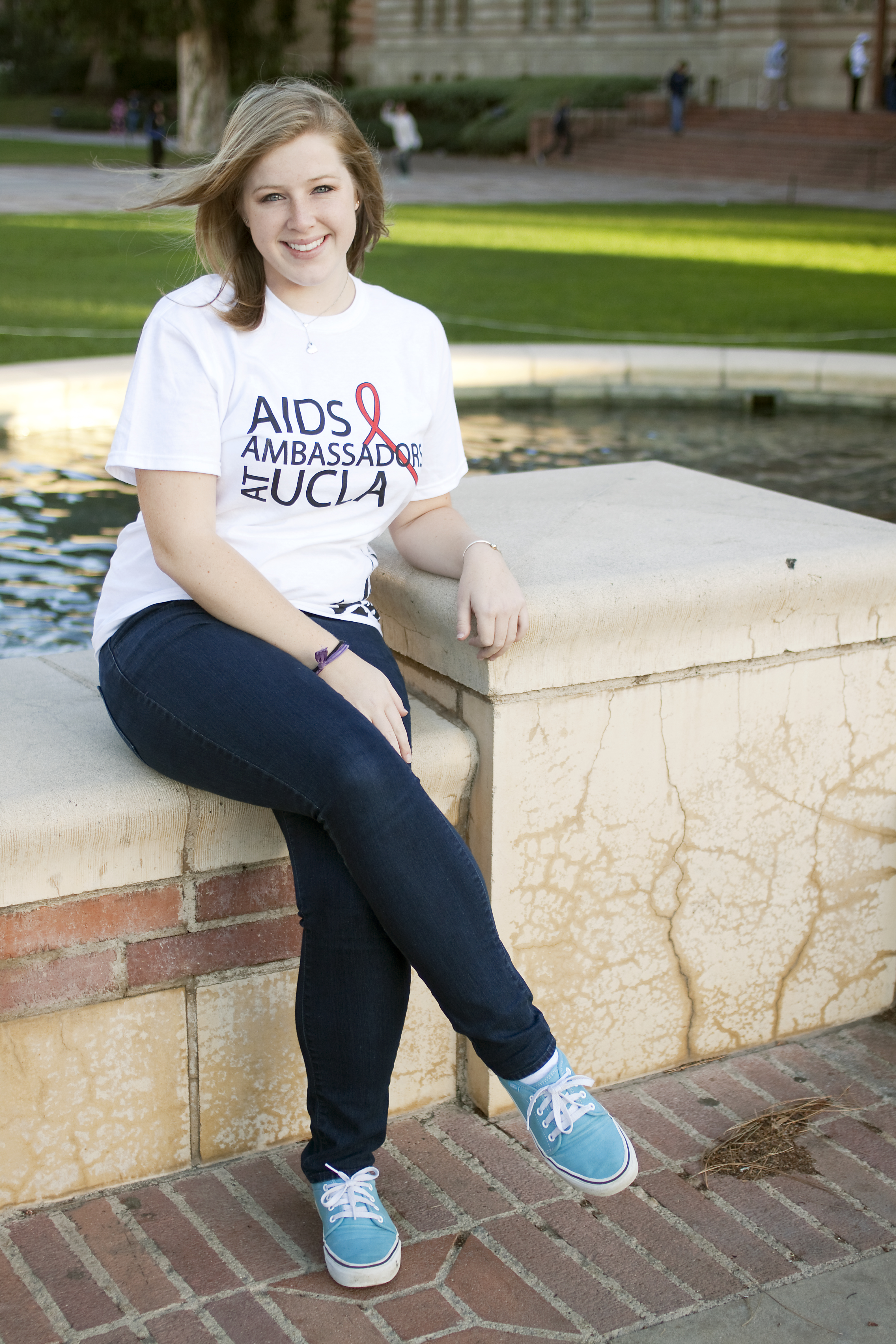Kaitlynn Yandell walked into King/Drew Magnet High School wearing a shirt with the words “Sex Squad” emblazoned on the front. All eyes were on her as curious students looked to find out why she was there.
The Sex Squad includes multiple organizations that reach out to local high schools to deliver free presentations on safe sex, with an emphasis on preventing the contraction of HIV. One of these groups is AIDS Ambassadors, of which Yandell is the internal affairs director.
A main goal of the group is to encourage peer to peer communication between UCLA students and their audience. Among those in the L.A. area, young adults between the ages of 15 and 24 are at the highest risk of contracting HIV, said Yandell, a second-year international developmental studies student.
“(The students have) been really positive so far this school year. I was a little surprised about how receptive they were about us coming into the classroom,” Yandell said. “We’re not so far removed (in age) that they feel like they can’t talk to us.”
Among the other groups that make up the Sex Squad is a performance team, which puts on a show for the high school students about HIV/AIDS in an assembly setting. In some cases, people who are HIV positive will travel with the groups to tell their personal stories to students.
“We try to come in with the attitude that we’re human and not superior beings,” said Aaron Lopez, a third-year political science student and co-director of AIDS Ambassadors. “That’s what distinguishes our group, because we come in as peer educators.”
AIDS Ambassadors have been on campus since 1999 and are currently part of the Community Service Commission, which also provides funding for the presentations. About five years ago, the group underwent a brief hiatus to restructure the format of the presentations.
Ambassadors now focus more on how to avoid contracting HIV rather than just on the biology of the disease, said Carrie Zhao, a fourth-year microbiology, immunology and molecular genetics student and external affairs director.
“We try to get the most bang for the buck for that hour,” Lopez said. “Our goal is to promote some sort of behavioral change. Students should already know (the biology) from health class.”
Information and funding for the presentations are provided by organizations, such as the UCLA AIDS Institute.
Before presenting, members must complete 20 hours of training with the Art | Global Health Center on campus and pass a quiz on the topics they will be presenting on, such as the difference between AIDS and HIV and the different stages of the virus.
The group also does presentations with incarcerated youths, who typically have more misconceptions about HIV than average high school students.
The AIDS Ambassadors presentation is in some cases the only sex education they have had, Lopez said.
While these youths can be rowdy at first, they become interested in the topic within the first few minutes of the presentation, he added.
The audience’s interest in HIV prevention motivated students such as Lopez and Yandell to join the AIDS Ambassadors and continue to be involved in the project.
For Yandell, the inspiration behind joining the group lies in the risky situations in which she regularly saw her peers engaging.
She said no matter when students think they will become sexually active, they should always be prepared in case a situation arises when they would need to speak with a partner about getting tested for HIV.
“I love that feeling of knowing I’m making a direct impact,” Yandell said. “I feel that the spread of knowledge is one of the best ways we can make a difference in this world.”
